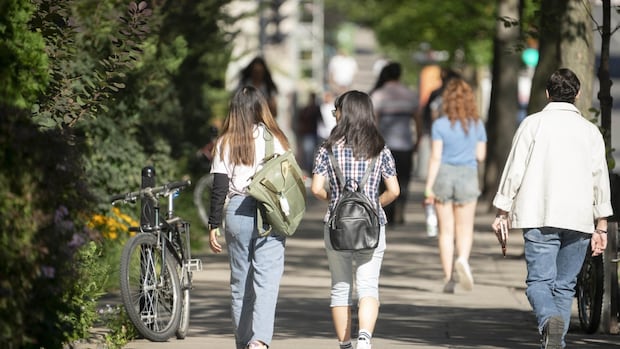Permits for students from abroad to study in Canada plummeted in the first half of this year, with nearly 90,000 fewer issued than a year earlier.
This comes after the federal government introduced a cap on international student visas in early 2024.
Between January and June 2024, Canada issued 125,034 international study permits.
Between January and June of this year, that fell to 36,417, Immigration, Refugees and Citizenship Canada (IRCC) told CBC News on Wednesday.
IRCC provided figures for the first halves of 2024 and 2025.
The number of applications for international student visas has also dropped. In the first half of 2025, the department received 302,795 applications, down from 398,675 in the first half of 2024 and 575,535 in the first half of 2023.
IRCC spokesperson Laura Blondeau said the drop in the number of applications received in 2025 is “a clear sign that the measures we’ve put in place are working.”
Blondeau said overall, the agency is “focused on attracting top global talent to help grow our economy.”
“We will continue to work closely with provinces and territories, designated learning institutions and national education stakeholders to develop a sustainable path forward for international students.”
In the past decade, against a backdrop of declining post-secondary funding and domestic tuition freezes in some provinces, many Canadian colleges and universities boosted recruitment efforts abroad and grew reliant on international student tuition, which is several times the amount paid by domestic students.
Researcher Dale McCartney on what prompted the sharp rise in international students, the role of work permits and how officials have long marketed post-secondary studies as an easier path to settling in Canada.
In late 2023, the federal government began introducing stricter requirements for international students, and in 2024 announced it was slashing undergraduate study permits by 35 per cent over two years.
Months later, that fell an additional 10 per cent and widened to encompass graduate and doctoral students, who were previously exempt. The federal government also tightened eligibility for the post-graduate work permit program at that time.
Colleges and universities across the country have said the cap has negatively impacted their finances, offerings and wider communities.







